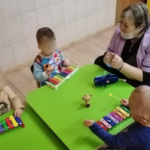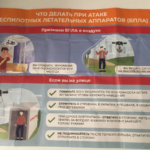Non-Russians at the forefront. Who is fighting and dying for the “Russian peace” in Ukraine

Today, on March 2, Ilnur Sibagatullin was buried in Nizhnekamsk. Tatarstan citizen died in the war in Ukraine, although Tatarstan President Rustam Minnikhanov didn’t specify this in his condolences. Experts drew attention to the disproportionately large number of non-Slavic names among the dead soldiers and prisoners.
Since the beginning of the Russian invasion of Ukraine, Ukrainian sources have constantly been writing about the losses of the Russian army and captured Russian soldiers. The Russian side doesn’t say anything about the losses, except for admitting the death of individual servicemen. The Ukrainian General Staff claims that 5,840 Russian soldiers have died since the start of hostilities. It is impossible to verify the authenticity of this information.
Thus, the Head of Dagestan Sergey Melikov has confirmed the death of the officer from Dagestan – Nurmagomed Gadzhimagomedov. On 28 February the Head of Kalmykia, Batu Khasikov, confirmed the death of Kalmykia resident – sergeant-contractor Konstantin Mandzhiev in Ukraine. According to Khasikov, Mandzhiev also died in a “special operation on protecting Donbass”.
On March 1, President of Tatarstan Rustam Minnikhanov expressed his condolences due to the death of a soldier from Nizhnekamsk, Ilnur Sibgatullin. Minnikhanov did not specify where exactly it happened, but from his speech it follows that the reason for his death is the war in Ukraine.
The head of Mordovia, Artem Zdunov, announced that during the hostilities in Ukraine a native of the Erzya village of Chukaly, Viktor Isaikin, died.
The governor of the Astrakhan region, Igor Babushkin, also mentioned the death of a serviceman from the Krasnoyarsk region, Arman Narynbaev.
There were also reports about dead soldiers from other regions of Russia, including the Kirov, Samara, Penza and Ulyanovsk regions, but at least during the first week of war, the number of deaths in Ukraine (the deaths officially admitted as such by the authorities of the Russian regions) of ethnic minorities from Russia (or indigenous peoples of Russia, not including the Russians) distinctly stands out with a disproportionately large percentage.
On 27 February, the investigator Khristo Grozev also stated that according to his data the high portion of the dead soldiers from Russia, who fought in Ukraine, consists of non-slavic people.
“ A huge number of them are young people from, let’s say, non-Slavic ethnic groups. That is, perhaps, it means that people who were sent to the front line were living in distant regions…”, – the investigator said.
According to the 2010 All-Russian Population Census, all non-Russian ethnic groups together make up just under 20% of the Russian population.
The topic was further studied by political scientist Abbas Gallyamov. He made a post on his Facebook page.
He said: “To be honest, I don’t even know what to think about it. One one hand, I really can’t imagine a person who would give such a cynical order. An order to steal money allocated for the purchase of tomographs – okay; An order to falsify elections – let it be; An order to send “hajis” to the front line, signing them to some special category called “cannon fodder” – no. On the other hand, I understand that the plan (let’s assume it actually exists) is actually working. Well, the funeral came to a remote Yakut village, well, the mother turned black with grief, well, fellow villagers got drunk at the wake – so what? They even don’t have any “Vkontakte”(Russian Facebook) – but even if they have it, they don’t have any habit of writing something there and they won’t make any political conclusions.”
However, Abbas also mentioned that he did not trust it all. He says that ‘the local chekists carefully trace the moods amongst the ethnick communities’.
“… Putin has a thing about fearing nationalists”, – he added. Mr. Gallyamov thinks a lot of people in national republics are likely to believe this information.
“At least the reason that the locals’ trust Moscow is minimal here – it demolished federalism and local governance, drawing finances from the regions, and, what is more, it in fact killed learning of ethnic languages at schools. The information that the capital “sends exactly ours to slaughter” will now be surprising to them” – said the politologist.
In circumstances when the Russian officials remain silent about the number of total losses, on Telegram-channels, predominantly Ukrainian, there appears a great number of messages about dead and captivated Russians. Oftentimes in those posts one may see or hear their names.
“Idel.Realii” analized posts of several Telegram channels, which published information about dead or captured Russians, and figured out, that around 30% of the processed names clearly belong to representatives of non-Russian ethnic groups, what is more, significant part of them are names of Muslim origin.
“Idel.Realii” searched the information about 107 Russian servicemen, who appeared in Telegram channels. This number does not include “Kadyrovtsy”. Taking them into account, the proportion of “non-Russians” may increase. Ukrainian media reported that on February 26, the Armed Forces of Ukraine destroyed a Chechen shock group, sent to “eliminate Ukrainian President Volodymyr Zelensky.” The “Caucasian Knot” publication (recognized as a “foreign agent” in Russia) reported that the head of Chechnya, Ramzan Kadyrov, disproved the information about the death of the Chechen military in Ukraine, including two unit commanders.
Besides ethnicity, it’s also clear that many of the dead or captive Russians (as of those, whose data was checked by Idel.Реалии) come from villages, distant regions and ethnic communities within the Russian Federation.
The plane with the body of the abovementioned Ilnur Sibagatullin, arrived at Tatarstan today, on 2 March, with a few hours delay. The soldier is already buried in his motherland.
Earlier the Russia Supreme Mufti – Talgat Tadzhuddin – had approved the decision of Putin to invade Ukraine.
The Tatarstan Muslim Spiritual Administration commneted on Ukraine, declaring that “after the coup d’etat the country is under the rule of neo-Nazis, who cause sufferings to people, including the muslim”.
At the same time the Administration urged to “pray for the well-being in every home” and wished “well-being and prosperity to the people of Ukraine”.
The Ukraine Muslim Spiritual Administration condems Russian military invasion and appeals to Putin for war cease.
Spiritual leader of Russian Muslims Mufti Sheikh Ravil Gainutdin called out all kind people to pray for peace in Ukraine.
“Idel.Realii”




2 Comments